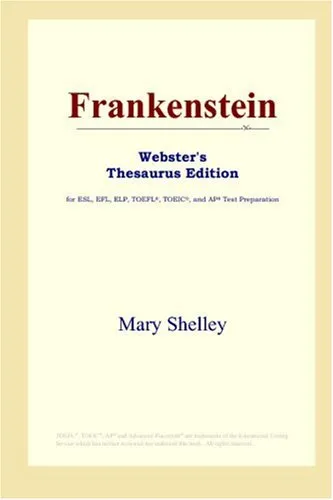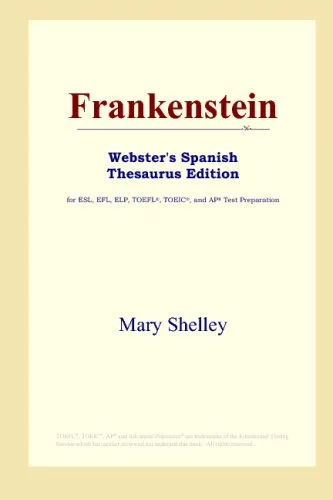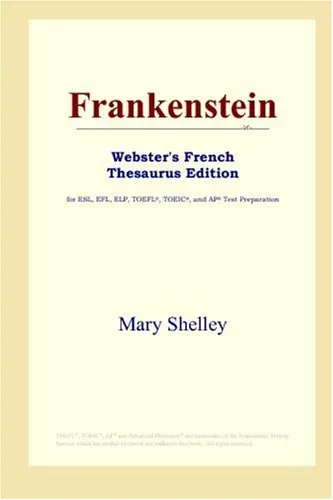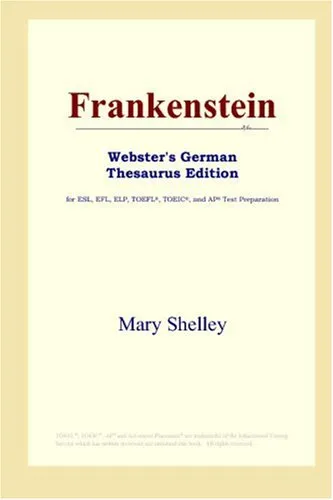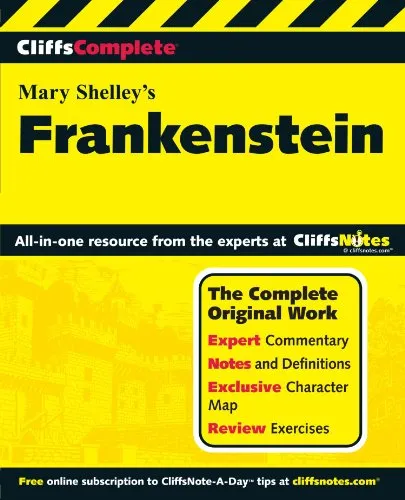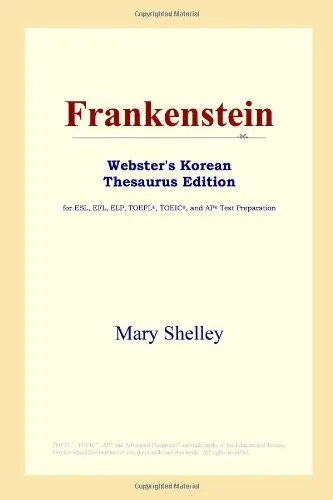Introduction to Frankenstein (Webster's Thesaurus Edition)
This edition of "Frankenstein" presents Mary Shelley’s timeless narrative enriched by a modern linguistic enhancement through the incorporation of Webster's thesaurus. This inclusion aims to aid readers in navigating the vivid vocabulary of the 19th-century prose with greater ease and understanding.
Detailed Summary of the Book
"Frankenstein" is a profound gothic novel that delves into themes of ambition, isolation, and the pursuit of knowledge. The story unravels the fate of Victor Frankenstein, a young scientist who, in his quest to transcend human boundaries, creates a sentient being from dead tissue. Despite his initial triumph, Victor is horrified by his Creature and flees, igniting a tragic chain of events.
The Creature, abandoned and misunderstood, embarks on a journey of self-discovery and solitude, learning the harsh realities of human nature. Desperately yearning for companionship, he confronts Victor, demanding the creation of a mate. Victor's refusal leads to a catastrophic series of confrontations, culminating in a pursuit across the icy wilderness.
Through the themes of unchecked ambition and the quest for meaning, Shelley crafts a cautionary tale on the perils of playing god and the responsibilities inherent in creation, making "Frankenstein" a seminal work in gothic literature and speculative fiction.
Key Takeaways
1. The Dangers of Unchecked Ambition: Victor's relentless pursuit of scientific achievement without consideration for moral consequences leads to his downfall.
2. The Quest for Identity: The Creature's journey reflects a quest for acceptance and understanding in a world that shuns him, highlighting themes of isolation and the human need for companionship.
3. Responsibility and Creation: Shelley's narrative questions the ethical and moral obligations tied to creation, urging readers to contemplate the responsibilities borne by creators.
Famous Quotes from the Book
“Beware; for I am fearless, and therefore powerful.”
“I ought to be thy Adam, but I am rather the fallen angel.”
“Nothing is so painful to the human mind as a great and sudden change.”
Why This Book Matters
"Frankenstein" remains a pivotal text in both literary and philosophical discussions, underscoring the intersection between science, ethics, and human emotion. It poses challenging questions relevant to contemporary discussions about artificial intelligence and biotechnology, making it a resonant text for modern readers. Mary Shelley's insightful exploration of the human condition through her characters serves as a timeless reminder of the dangers and responsibilities that accompany human innovation and ambition.
